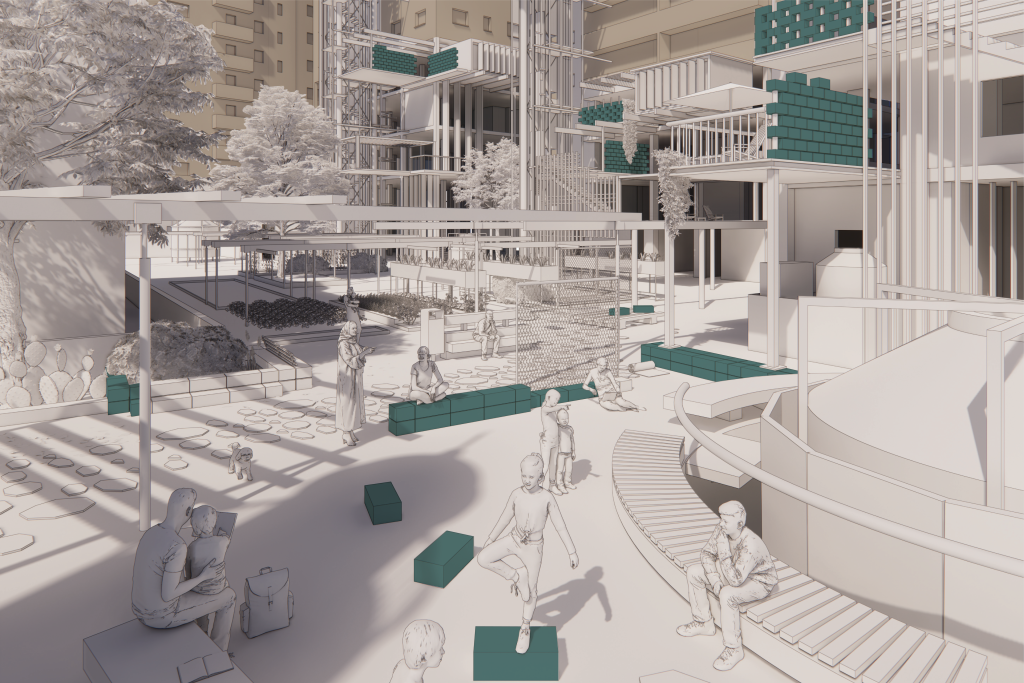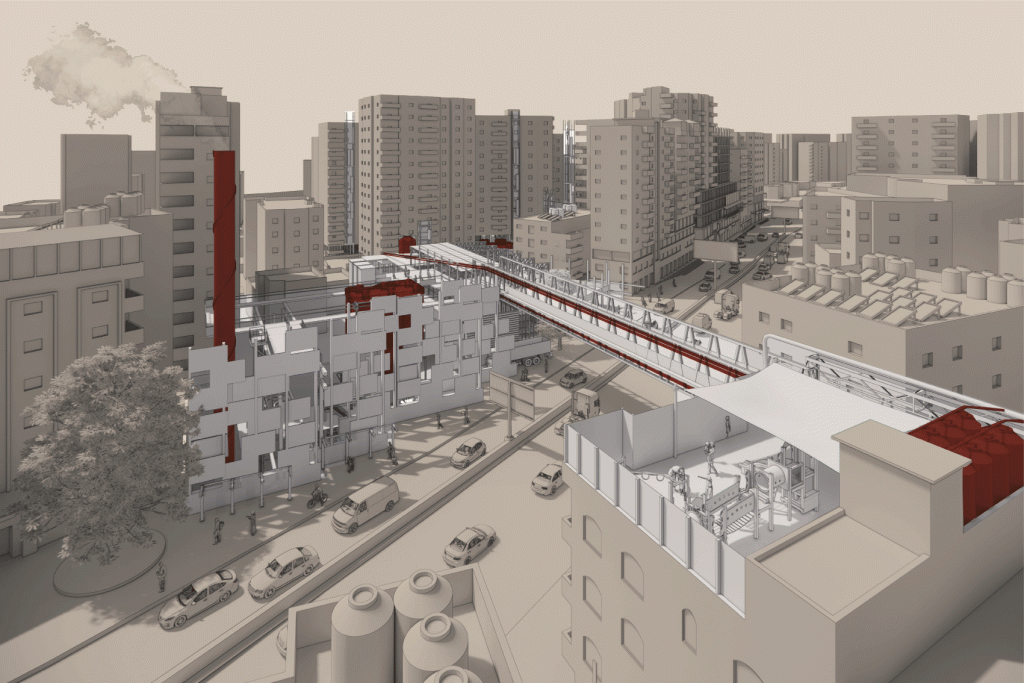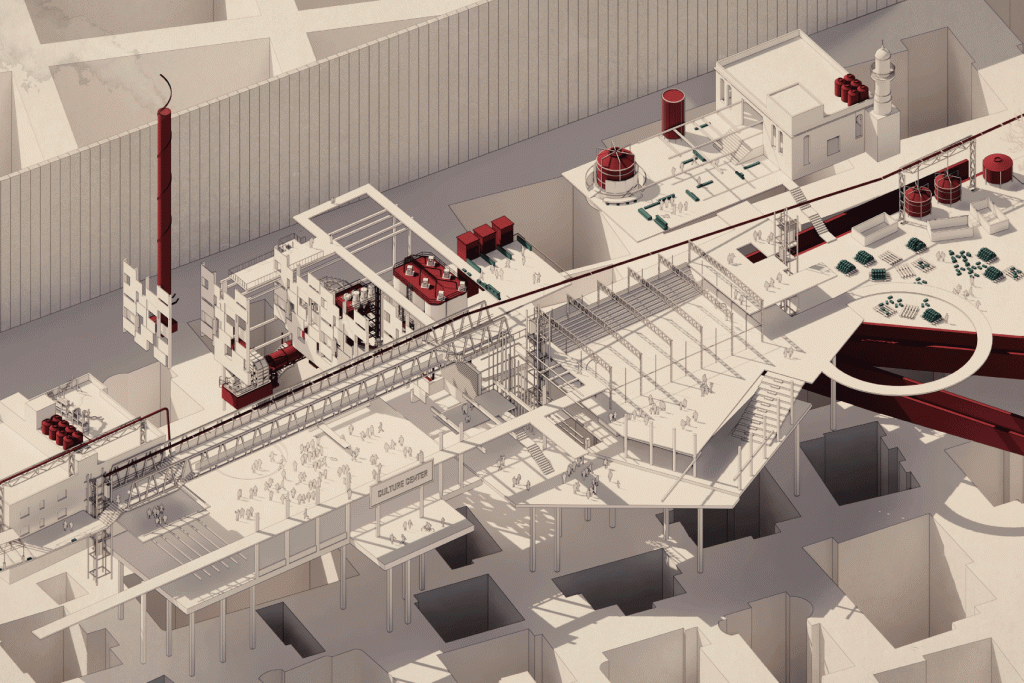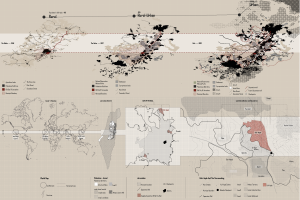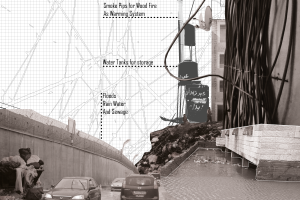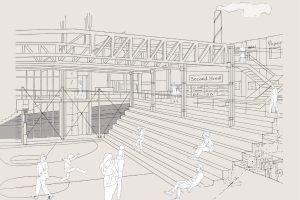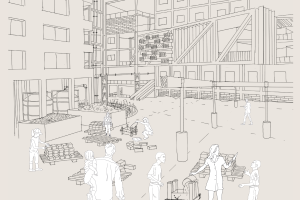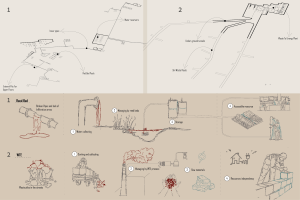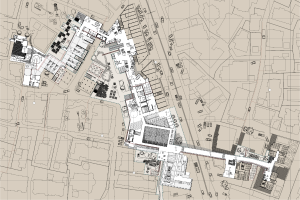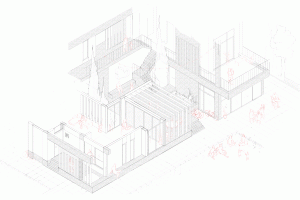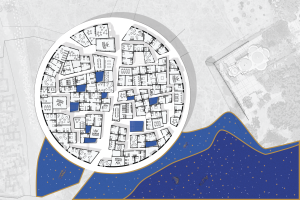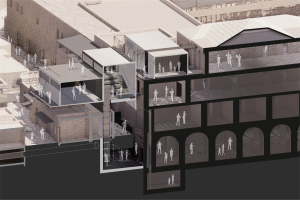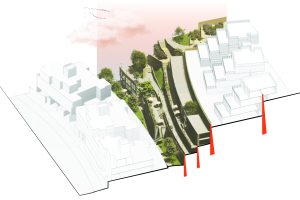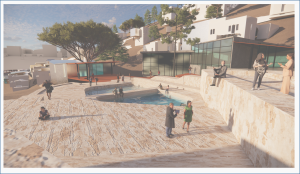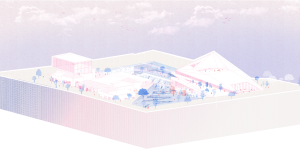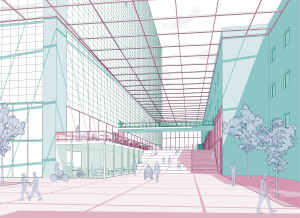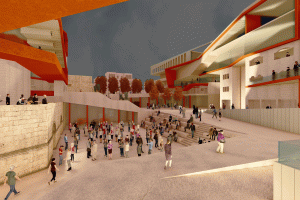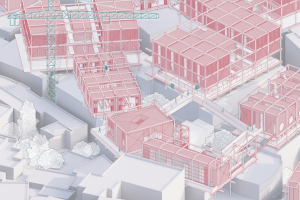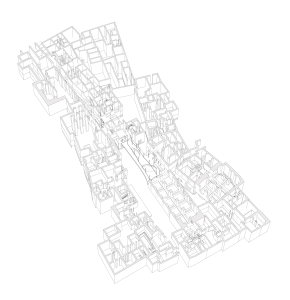InfraCitizenship
The InfraCitizenship project in Kufr Aqab seeks to reimaging a new form of community governance, with the social practices and infrastructures as the center of urban politics.
In places where a physical wall separates and divides ethnically different communities, it affects the life of the population. Hence, it cannot be ignored and must be experienced by the civilians on a daily life basis. However, this physical form of conflict can be used as a tool for revolutionary planning.
Kufr Aqab lies within the jurisdiction of Jerusalem, yet it is alienated by a wall, obtained from the city rights, and not provided with infrastructure and services. This situation has left the neighborhood with a governing void that has allowed economic powers to shape the urban fabric.
The project wants to break into Ramallah-Jerusalem Street, destruct its monolithic façade, and manifest new urban citizenship. It determines the spatial relations among the urban built mass fragments. The program is based on the commune center services and transforms it into a productive program, integrating the population with infrastructure in order to create an inner waste and water management system as a tool to achieve sustainability and accessibility followed by values of social collectivity.



